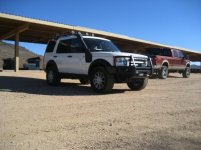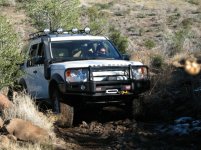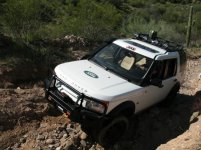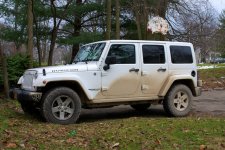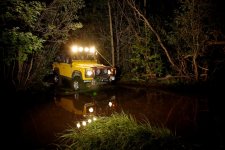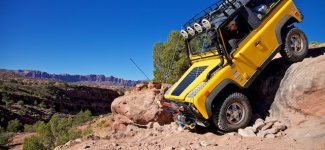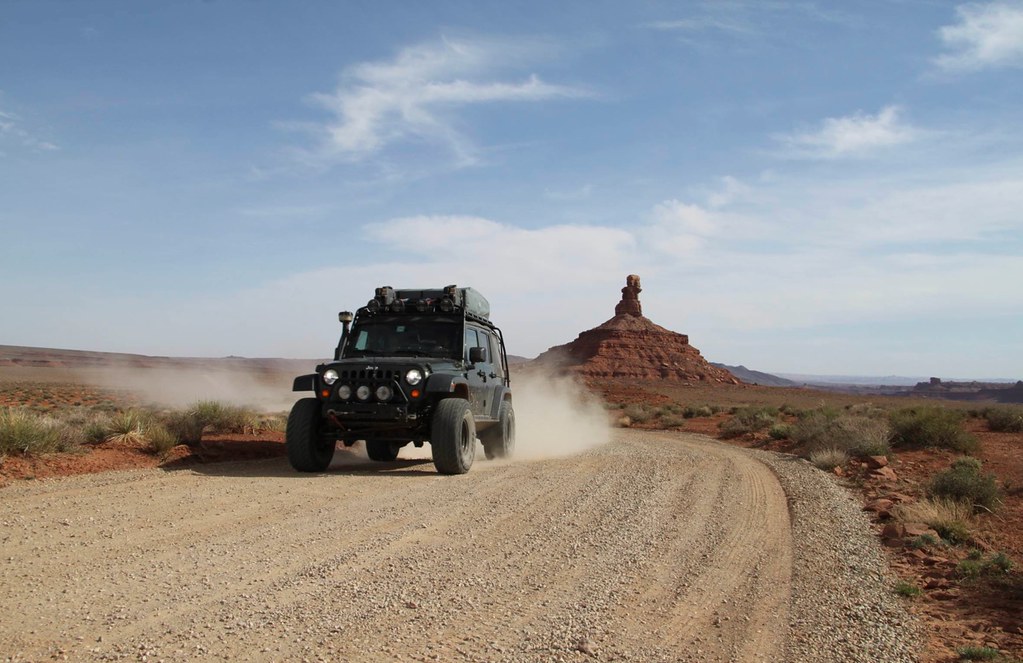But now, here's something that I'd like to add - most of the trail breaks I've seen have come from guys running under-built rigs that are overly weighed down and because of it, forced to push their vehicle harder than would be needed if it were built up with better components. In fact, most of the breaks I've seen have been drive train related such as broken axle shafts, broken drive shafts, blown out ring and pinions and NOT, suspension related components.
Sure, but most of the wheeling you guys do is NOT what would traditionally be called "overland" wheeling. Weighing a rig down with 2k lbs of bumpers and then taking it crawling over hardcore obstacles, and yeah you're going to break stuff. A stock Rubicon or very modestly built JK wouldn't even flinch at the type of terrain even most hardcore international expedition guys have to deal with on a routine basis let alone what we have here in the states. Stick a winch on a Rubicon off the showroom floor and you've got a rig that's way more capable and reliable than 90% of the classic "rack and snorkel" overland rigs out there.
My point here is that if
only intend to use your rig for "overland" style travel, you're not likely to need the added capability of many aftermarket components, and hence you're probably better off keeping your build super simple and closer to stock to avoid the risks that come with upgrading. Compatibility, reliability, suspension geometry changes, parts replacement in the field, etc. are all maybe minor risks, but they're greater than zero.
The great thing about the JK platform and the current state of aftermarket components is that we can have our cake and eat it too. Throwing a pair of beefed up axles and well-engineered coilovers under a long wheelbase JK will likely only
improve your comfort and carrying capacity for longer more remote trips, and also ensure that you don't break an axle if you do want to hit more challenging stuff.
For things like axle housings, axle shafts and drive shafts, it is my opinion that aftermarket components are not only far superior, they are also easier to repair should they break. Certainly, things like a standard 1310 u-joint is a lot easier to come by than an proprietary Rzeppa joint.
I think this depends a lot on the part in question, and it cuts both ways. Yes, a standard u-joint will be easier to come by, though stock JK driveshafts are also quite plentiful in my experience. Can you walk into any old Kragen and pick up a replacement 14" coilover? (I actually don't know, I've never tried.) How likely is it that you'll be able to find a direct replacement for your rear passenger D60 Dynatrac axle shaft, should it break 10 miles in on the trail? You know, hypothetically speaking...

In all seriousness, I think ease-of-replacement is pretty much a non-issue here in the states, where we can typically just make a cell phone call and have pretty much any part imaginable flown in overnight.

